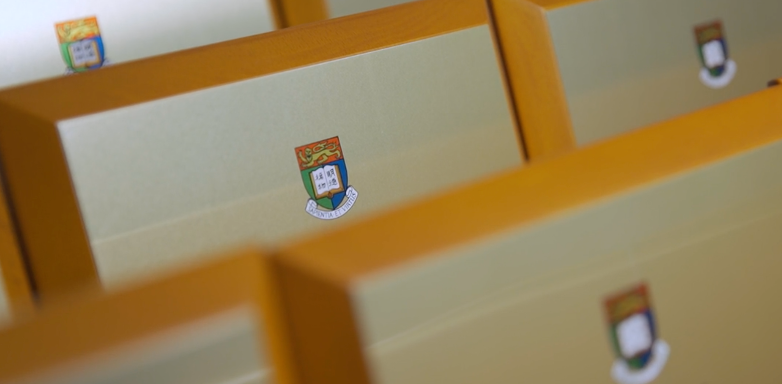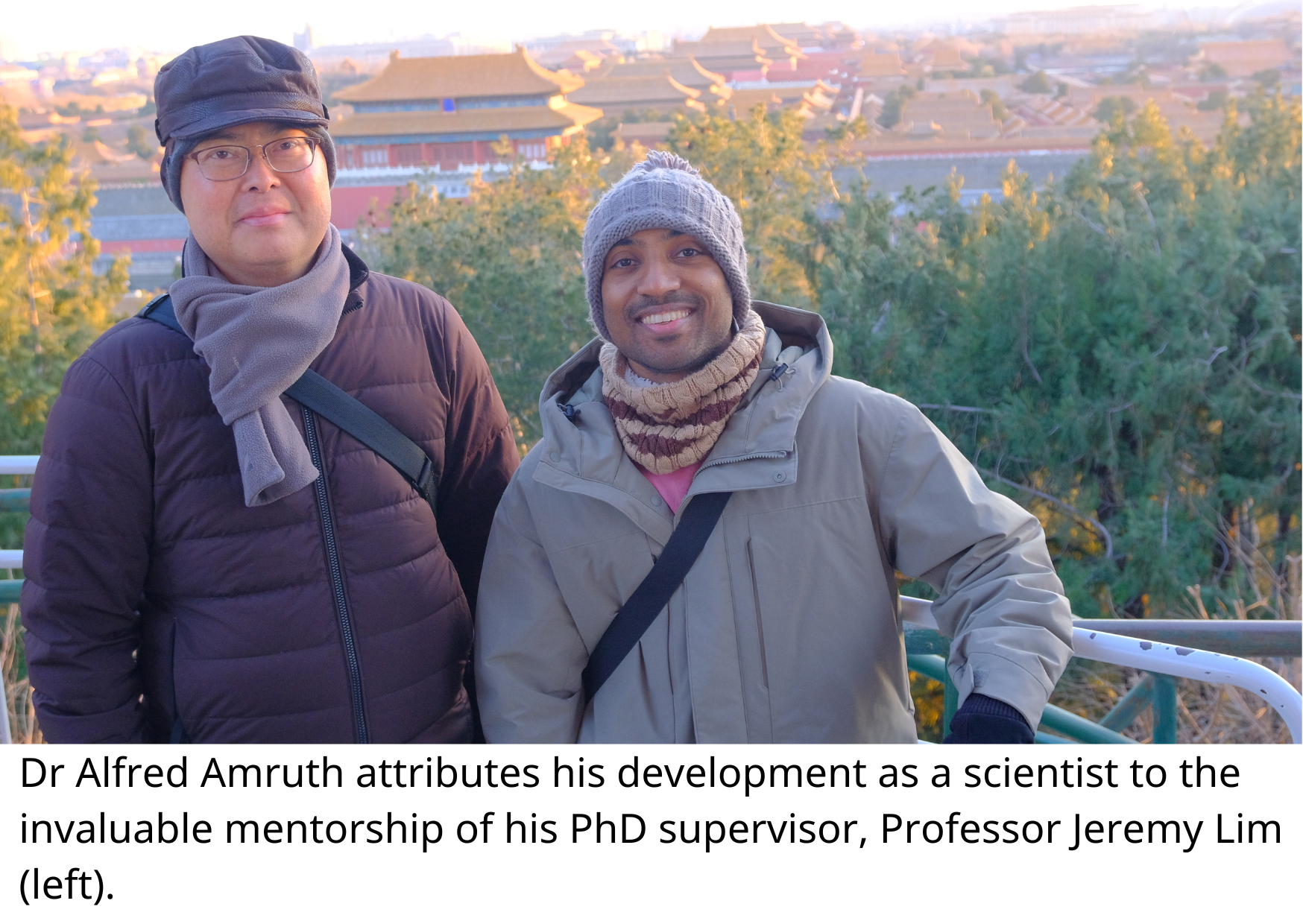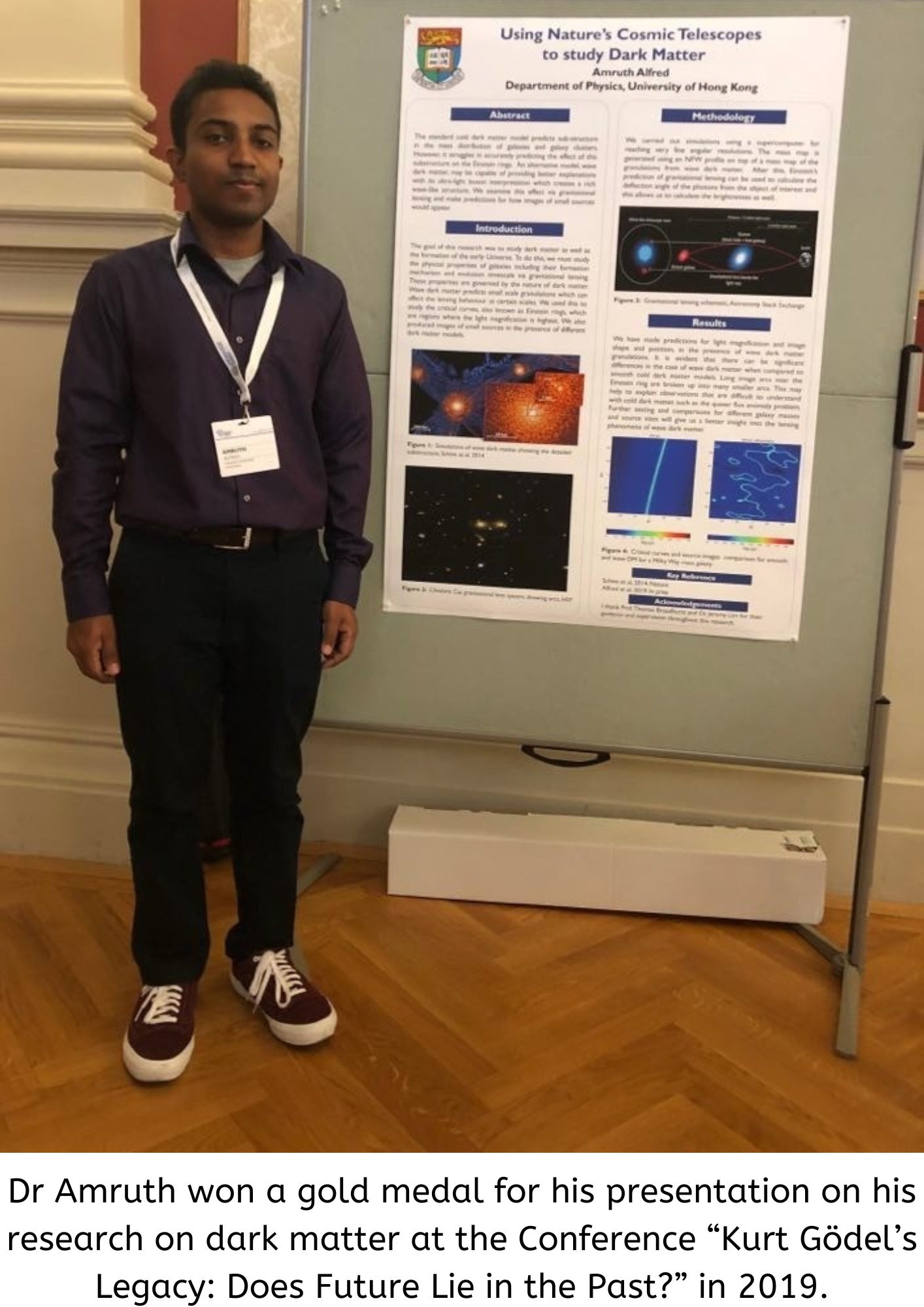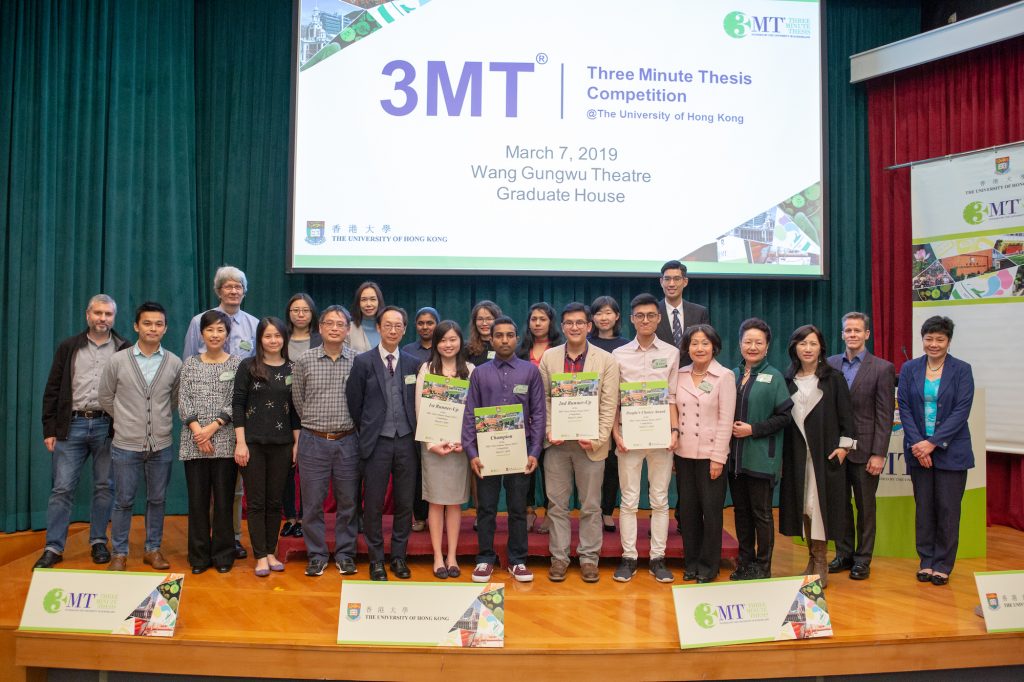

{{'Newsletter' | t}}
Alfred Amruth – Shining Light on Dark Matter with Nature’s Cosmic Telescopes

Dr Alfred Amruth is a PhD graduate of the Department of Physics, Class 2024. He is currently a postdoctoral fellow in Professor Jeremy Lim’s research group. Dr Amruth’s research focuses on dark matter and gravitational lensing. His innovative approach to solving the mystery of dark matter in the universe has earned him multiple awards such as the 2023 Hong Kong Young Scientist Award in Physical/Mathematical Science, the Research Postgraduate Student Innovation Award 2023/24, and an honourable mention in the 2023 International Astronomical Union PhD Prize.

My journey at HKU began in 2013 when I came for my undergraduate programme, double majoring in physics and astronomy, right after my high school in Sri Lanka. Starting from the summer of my 2nd year, I began research with Professor Jeremy Lim—one of the leading astrophysicists in Hong Kong—continuing with a Summer Research Fellowship the following year. At the time, my GPA was not high enough to warrant being selected for research, and so for Jeremy to give me the opportunity to join his group was extremely kind and something for which I am forever grateful. Now, it has been 12 years since that time and I have completed an MPhil and PhD with Jeremy and am currently a URC postdoctoral fellow in his group.
 Nearly 6 years of research culminated in my first journal publication, fortunately selected as the front cover for the June 2023 issue of Nature Astronomy—even more fortunately being accepted for publication on the very day of my PhD oral defense examination. One can only imagine the anxiety and fear for a PhD student to not have any publications until the end of their degree. However, in my case, I knew from the constant discussions I had with Jeremy that if one did honest, daring yet careful research, that’s all that matters and the rest will follow. This gave me the motivation to persist in my research regardless of ups and downs, to question existing paradigms and ideas, and to push forward and dare to ask piercing questions.
Nearly 6 years of research culminated in my first journal publication, fortunately selected as the front cover for the June 2023 issue of Nature Astronomy—even more fortunately being accepted for publication on the very day of my PhD oral defense examination. One can only imagine the anxiety and fear for a PhD student to not have any publications until the end of their degree. However, in my case, I knew from the constant discussions I had with Jeremy that if one did honest, daring yet careful research, that’s all that matters and the rest will follow. This gave me the motivation to persist in my research regardless of ups and downs, to question existing paradigms and ideas, and to push forward and dare to ask piercing questions.
For the patient work I did in my PhD, I was lucky enough to receive accolades such as the Hong Kong Young Scientist Award, given to the best PhD thesis in Hong Kong amongst physics, mathematics, and chemistry, runner-up for the International Astronomical Union PhD Prize. and the Grand Prize in Innovation at the 10th Hong Kong University Student Innovation and Entrepreneurship Competition. I give full credit to Jeremy for not only training me to keep an open mind and follow the scientific method, but also for training me strongly in communication, both written and in giving talks and presentations. This is evidenced by being honoured with the first place at the HKU 3 Minute Thesis Competition, where students present their research to a general audience within 3 minutes using only one slide.

Dr Amruth led a team of astrophysicists to reveal the nature of dark matter through the study of crinkles in spacetime. The research findings have been published in Nature Astronomy.
Despite having various opportunities and being invited to work as a postdoctoral fellow outside of Hong Kong after my PhD, I chose to stay and continue my research at HKU in the form of a bridging postdoctoral fellowship. Why? Because the work we have done, and continue to do, in our research group in collaboration with experts across the world is at the international forefront of research in uncovering the nature of dark matter—a mysterious substance that comprises nearly 85% of all mass in our Universe. We are using the technique of gravitational lensing, which is the bending of light due to mass predicted by Einstein’s theory of relativity. The environment in our research group is highly conducive to original and penetrating research, which again is due to Jeremy’s unconventional approach to doing science.
All in all, my advice to new students aspiring to be scientists is this: The true sign of a great scientist is deep humility, the ability to learn from mistakes, accepting that one does not know everything, and continuing to keep an open mind. Astronomy certainly encourages this, since we are constantly reminded that the Universe is a vast cosmic stage in which humanity takes a very small role, but it is not any less true in the other sciences. Humility, combined with great passion, can take one to the stars.
Dr Amruth received his PhD degree at HKU in 2024.
Dr Amruth was awarded the 2023 Hong Kong Young Scientist Award in Physical/Mathematical Science by the Hong Kong Institution of Science.
Dr Amruth won the Grand Prize across all innovation categories, and also 1st Place in the Maths/Physics Category.

Dr Amruth was the Champion of the HKU 3MT Competition 2019.
